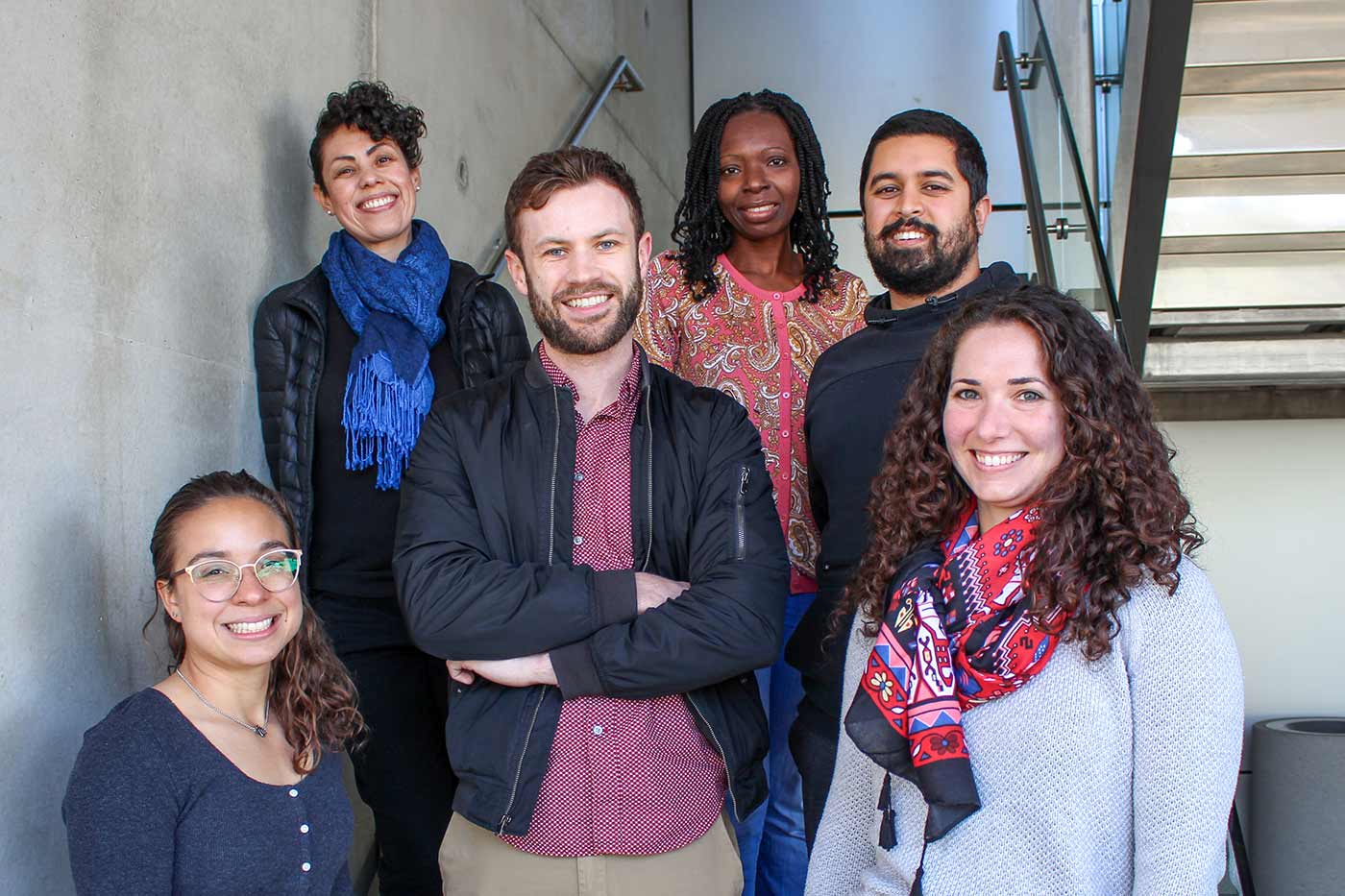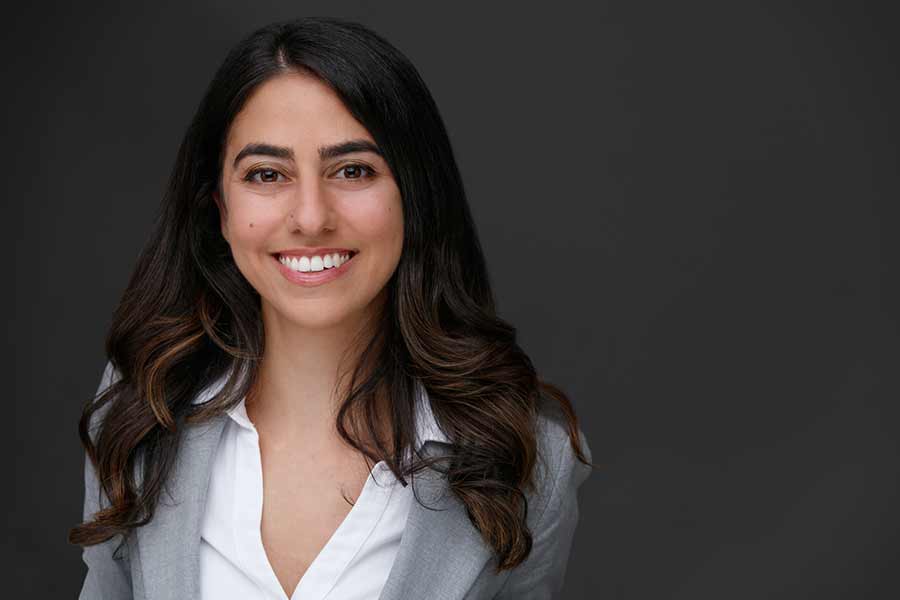By:
- Nicole Mlynaryk
Published Date
By:
- Nicole Mlynaryk
Share This:
Diversity and Science Lecture Series Gets Funded
Graduate seminar series receives a $460,000 grant from the Chan Zuckerberg Initiative to expand its programming at UC San Diego and beyond
Amid the growing social justice movement in the summer of 2020, many graduate programs issued mission statements for equity, diversity and inclusion (EDI). But as Gene Yeo, a professor of cellular and molecular medicine at UC San Diego School of Medicine, met with students from the Bioinformatics Graduate Program (BGP), he could see they needed something beyond a statement from the leadership.
“It was clear the graduate students were looking to have their voices heard,” said Yeo, who co-directs the BGP. “They wanted us to understand their experiences and hear their needs. I thought, ‘what better way to give them a voice than to let them speak.’ ”
In the weeks that followed, Yeo recruited a group of students and postdocs to design a program where junior life scientists could discuss their perspectives on social justice in STEM. By the end of June, the group was holding its first session of the Diversity and Science Lecture series (DASL).

2021-2022 DASL organizers include (from left to right) Jillybeth Burgado, Fabiana Izidro Layng, Evan Boyle, Gertrude Ecklu-Mensah, Noorsher Ahmed and Gabriela Goldberg. Not pictured: Mike Cuoco and Dottie Dothard.
The virtual seminar series highlights the academic journeys of early-career scientists from diverse backgrounds. In the 20-minute talks, each speaker shares their latest research and explores the personal life experiences that shaped their careers. Speakers are also encouraged to share EDI resources with audience members or suggest a specific call to action.
“Our mission is to give a highly visible platform to underrepresented, disadvantaged, minoritized life science trainees—what they do with that platform is their choice,” said Evan Boyle, DASL co-founder and a postdoctoral fellow in the Yeo lab. Before leading DASL, Boyle was also the vice chair of EDI for the UC San Diego Postdoctoral Association, where he established a group serving queer and allied postdocs.
The series has now hosted more than 80 graduate student and postdoc speakers, and covered topics including racial, immigrant and LGBTQ identities, rural backgrounds and disabilities. Boyle also noted that nearly every speaker has highlighted the importance of family support and mentorship in their careers.
“The message to university faculty and staff is clear: Don’t ignore social bonds in fostering successful research programs.”
The team recently released a preprint of a manuscript summarizing DASL’s strategy and outcomes, hoping it will help other institutions launch similar grassroots efforts. Their success has now also helped them secure funding from the Chan Zuckerberg Initiative (CZI). The $460,000 grant will allow DASL to expand its programming at UC San Diego and support new DASL programs at partnering institutions, including UCLA, Harvard University, Vanderbilt University, Emory University and the University of Utah.
Freedom of expression
While the ship is sailing smoothly now, Boyle describes the early days of DASL as “quite experimental,” with both speakers and organizers unsure of the best structure for these complex conversations. They anticipated that the familiar format of a research talk would bring in a wider audience, but they also wanted speakers to have freedom and flexibility. In this “by students, for students” program, collaboration would be key.
The group began holding dry runs in which each speaker had a chance to practice their talk and get personalized feedback from the organizers before facing an audience of students and faculty. Now a staple of DASL, these practice sessions have proven to be important in helping speakers strengthen their message and feel prepared to share their stories.
One such speaker was Ege Yalcinbas, a neurosciences Ph.D. student who presented in the spring of 2021. In the lab, Yalcinbas studies the neural circuitry of learning and motivation. In her DASL talk, she described what’s kept her motivated in her career.

Ege Yalcinbas
As she led the audience along her winding path to science, a central message emerged: She wasn’t “destined” to become a neuroscientist, but thanks to practical support (scholarships, awards, conference invitations) and social support (family, friends and mentors), she’s now become one.
“My question is, how do we make science a space where anyone interested can serendipitously arrive and feel comfortable? How do we remove barriers that prevent people from following their interests and safely landing here? That’s how I think about diversity.”
For Yalcinbas, who was born and raised in Istanbul, Turkey before her family relocated to the United States, one of the earliest draws of science was its universality and objectivity.
“I was an immigrant from the Middle East in post-9/11 America,” said Yalcinbas, “but in science class, it didn’t matter where I was from, what my name was, or what I looked like. I could almost escape these parts of my identity and just nerd out.”
But like many students from underrepresented backgrounds, Yalcinbas began to struggle with this erasure as she moved further into her research career. She sensed that many scientists seemed to leave their non-science identities at the laboratory door.
“I felt like I had to suppress my identities—as an immigrant, as a woman, as an artist—to be taken seriously, but now I’m reclaiming them.”
After her talk, Yalcinbas received a slew of emails from students who related to her take on diversity and struggles with assimilation, but the response that surprised her most was from the faculty in the audience.
“I thought it would be intimidating to share my story with professors, but I actually felt really empowered by the dynamic. At a DASL seminar, the faculty are the ones listening and learning from you. And they can take these insights back to their departments where they make decisions about program funding and culture. It’s a really creative way to bring us together and make change happen.”
The future of DASL is bright
The CZI grant funding will usher in a new era for DASL at UC San Diego and its growing list of partnering institutions. Some funds will go to supporting their annual Diversity and Science Symposium, where leaders from each university meet and exchange ideas. Yeo also plans to involve local leaders in biotech, who may provide insight on how other scientific industries are approaching EDI.
Another portion of grant funding will be allocated toward honorariums for future speakers and volunteers. Yeo said he hopes this reward system will help faculty members appreciate the labor that graduate students put into this initiative, in addition to their lab work.
“Thanks to this recent funding from CZI Science, DASL is on the way to becoming a national movement,” said Yeo, “and it all started with the amazing trainees here at UC San Diego.”
Share This:
You May Also Like
Stay in the Know
Keep up with all the latest from UC San Diego. Subscribe to the newsletter today.



